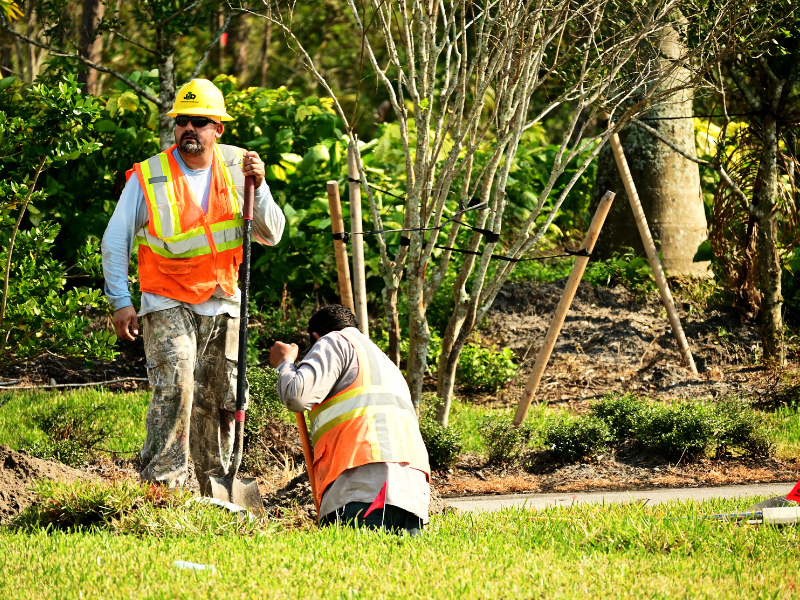The popularity of remote work has been on the rise for many years now. As more employees work remotely, small business owners are wondering if their remote employees need workers’ compensation and how it works if an employee gets hurt. During the current pandemic era, remote work has become the norm rather than the exception.
Even though employing remote working has become common these days, it also brings with it its own set of legal issues and potential liabilities. Employees working from home or other locations are not exempted from workers’ compensation benefits if they are injured on the job. You must understand the basics of workers’ compensation insurance for remote workers if you currently have remote workers or plan on hiring more in the future.
Providing a safe working environment for remote workers begins with preventing common office injuries. The most effective ways to do this are to implement procedures that prevent hazards. Besides providing support to remote workers, it explains to them how to set up and maintain a healthy and safe work environment at their homes.
It is critical to know the workers’ compensation requirements for remote workers to protect your business and employees. In this section, we’ll discuss the basic requirements and give some tips on how to provide workers’ compensation coverage to remote workers.
Does Workers' Comp Cover Remote Workers?
Workers’ compensation policies may cover remote and telecommuting employees if they are injured while performing a work task during working hours. Employees who work remotely usually have to prove that an injury sustained at work is work-related. In other words, remote workers must show that they acted in the company’s interest when they were injured to successfully claim workers’ compensation benefits.
Even though an employer cannot control the conditions of a worker’s home-based work environment, courts have found this to be insufficient grounds for denying workers’ compensation benefits. Often, they view the hazards present in an employee’s home workspace as a risk to their job. Because of this, employers are responsible for providing the same safe work environment for remote workers as they would for workers on-site.
Depending on the injury type, the state where the workplace is located, and the details of remote working policies, this may or may not be covered.
What does “work-related injury” mean for remote workers? Workers’ compensation compensates employees whose injuries or illnesses occur in the course of their employment, regardless of where the injury occurs. Take these things into consideration:
- What the employee was doing when injured
- When the injury happened
What Are The Most Common Work From Home Injuries?
You face a challenge since your employees’ home environment might not meet the same levels of safety as your workplace. They are more likely to slip on water spilled from a dog bowl, trip over their child’s toys, or fall down the stairs.
According to claims examiners, the two most common types of work from home injuries are cumulative injuries (usually the result of poor ergonomics) and slips, trips, and falls. Here are more details about prevention measures.
Guidelines For Stablishing A Home Office
In every state (except for Texas) employers are required to provide workers’ compensation coverage to their employees, including those who work remotely. Employers can limit workers’ compensation liabilities for remote employees by implementing the following practices:
Establish a clear description of the employee’s regular working hours and duties
Employers can better evaluate whether or not claims they receive from remote workers are work-related if they define their employees’ normal working hours and duties.
Create guidelines for remote or home offices
By providing guidelines for remote workers, such as keeping a designated work area, and training them on workstation configurations and safety measures such as ergonomics, employers can reduce the likelihood of injuries when they work remotely.
Establish a remote work policy defining expectations
This policy should cover a range of pertinent matters, including time management practices, time reporting policies, designated work areas, equipment used, and any other details that can help remote workers understand their responsibilities during work hours.
PEOPAYGO Offers Free Quotes For Workers' Compensation
Businesses and self-employed contractors might want to consider getting a policy that protects their business if they get hurt at work instead of skipping workers’ compensation protection. As a leading small business insurer, PEOPayGo is a great option.
As a Professional Employee Organization (PEO), P.E.O.PayGo can help you get workers comp, bundle payroll, HR, and perform all the headache functions of a small business, all while saving your time and money. Let our Instaquote do all the work, we don’t need much information and it takes 2 minutes. Our software does all the work for you.
Get Ready, Set, and Covered Now!




